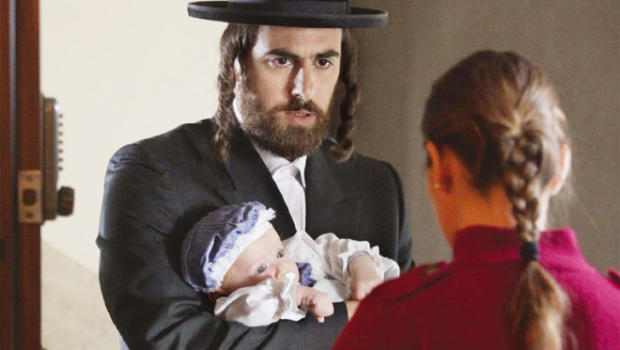Review: A glimpse inside the ultra-private Orthodox Jewish world
January 27th, 2013 Posted in OpinionBy Dani Hayes
PARK CITY—Ultra-Orthodox Jewish Hasidic communities have practically been invisible to the world. Rama Burshtein, a Hasidic Jew herself, wanted to give her people a voice and the result is “Fill the Void,” which offers outsiders a look at the strictly conservative and secluded life she chooses to live.

Young Shira’s arranged marriage to her dead sister’s husband is arranged by her Orthodox Jewish parents to “Fill the Void.”
“For me, it was about just being human, in our way and our set of rules,” she said at Sundance. “Just being human. I didn’t have something very big to say—just that we feel.”
Set in Israel and with dialogue completely in Hebrew (with English subtitles), the beginning of the film sets the foundation of how relationships and marriages are tightly managed within the Hasidic community. There is great separation of men and women in public and in the home, including married couples. Any talk of a marriage involves the whole family and must be approved by the rabbi.
Eighteen-year-old Shira, played by Hadas Yaron, is put in a difficult position when her older sister dies in childbirth, and she is pressured to marry the widower, played by Yiftach Klein, and take over care of her infant nephew. “Fill the Void” is shaped as a love story, but a love story most have never seen. The Hasidic community is quiet and secluded, in large part be intention.
“We don’t have a voice at all in the cultural world,” Burshtein said. “The Orthodox, they do not grow up in culture; they have their own culture. They are [so] very suspicious of people from the outside that they don’t go out. So I felt that we are mutes … I felt that this is a world that I chose and I found it very beautiful and deep and smart. I felt it was time to have a voice—just a very small-storytelling voice.”
The film contains minimal dialogue and outstanding cinematography. Burshtein represents her religion to an “outsider” audience beautifully and with clarity and simplicity.
“It’s about being human, so simple,” she said. “I cannot say more than that. It’s about all of us feeling.”
TP
Tags: Fill the Void, orthodox Jews, Rama Burshtein, Sundance

Sorry, comments for this entry are closed at this time.